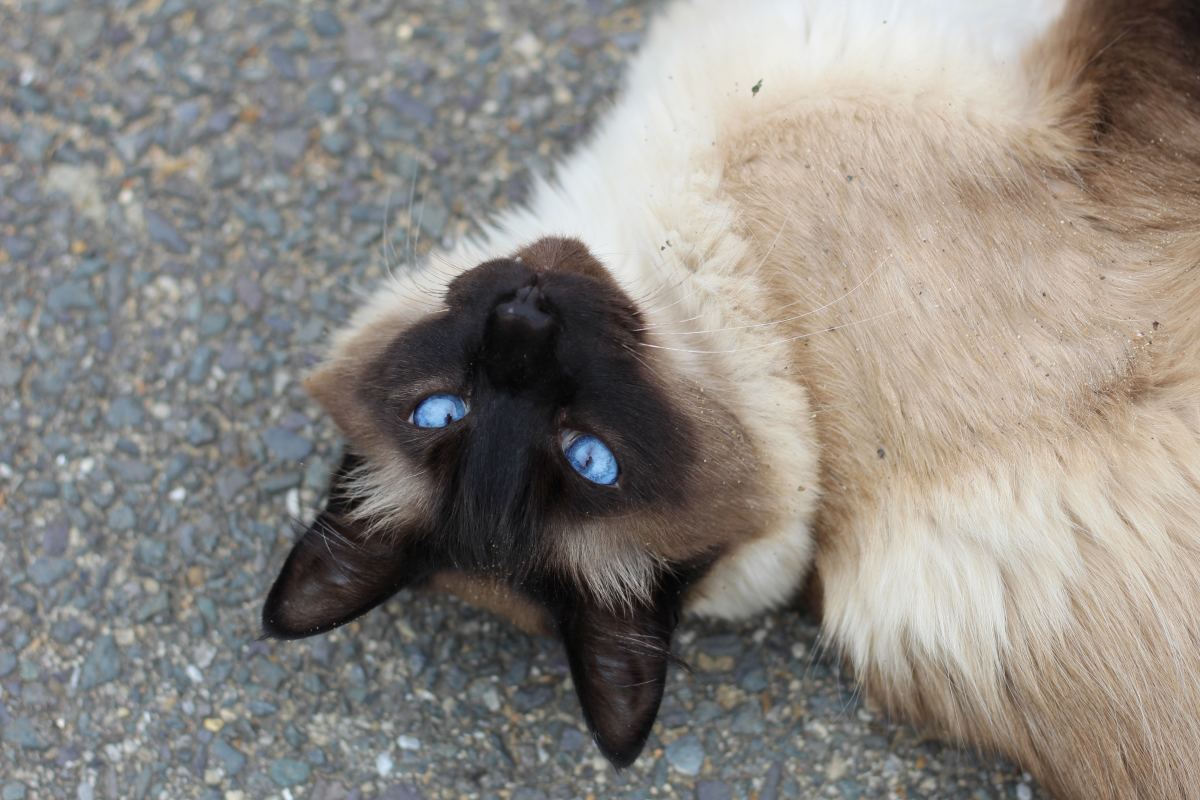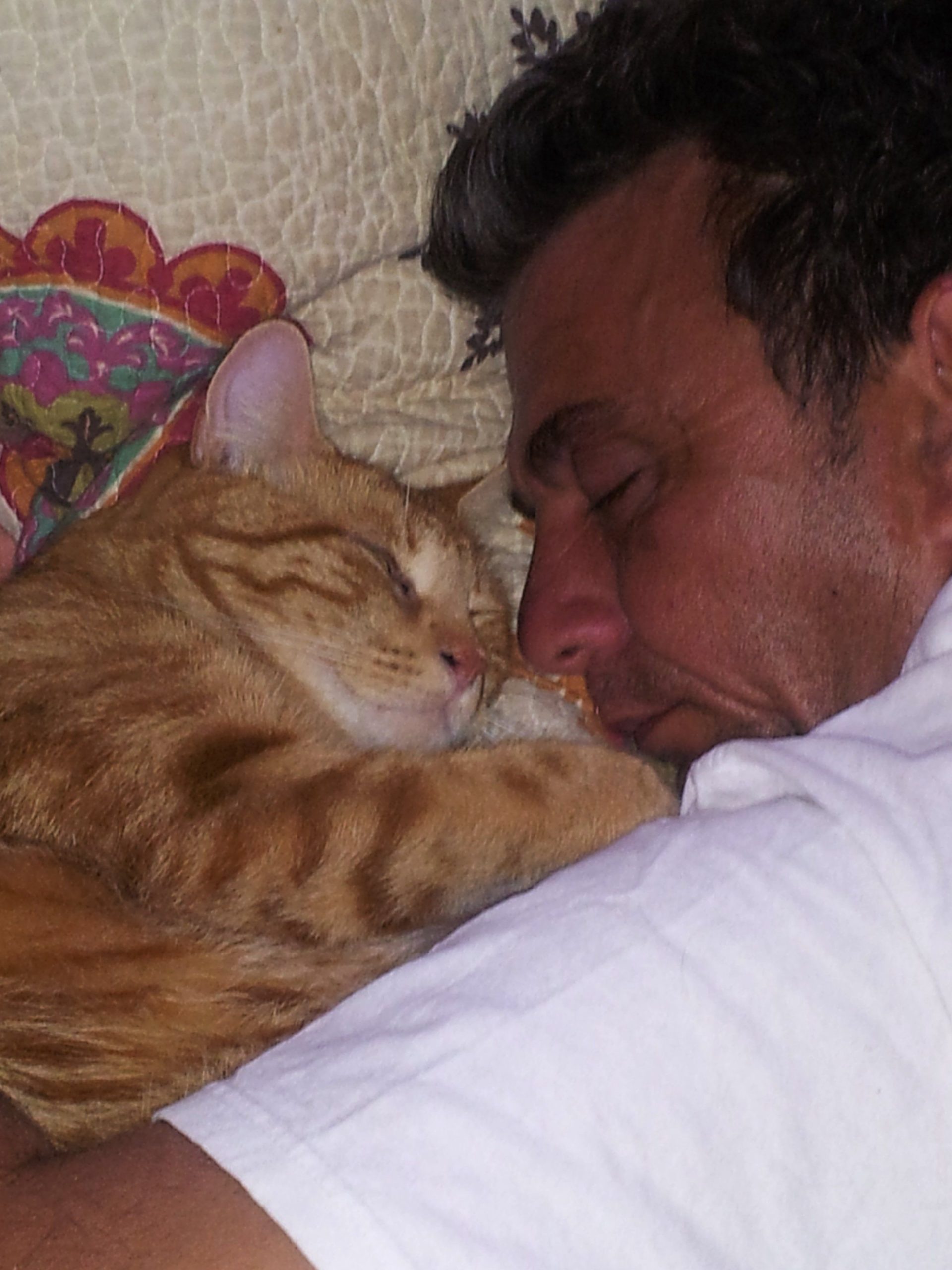Contents
I. Introduction to Siamese Cats and Jealousy

Siamese cats are known for their striking blue eyes, sleek coat, and vocal nature. These beautiful felines have captured the hearts of many cat lovers around the world. However, Siamese cats are also known to have a unique personality trait – they can get jealous. But what exactly does it mean for a Siamese cat to be jealous?
Just like humans, cats can experience a range of emotions, and jealousy is one of them. Siamese cats, in particular, are known to form strong bonds with their human companions and can become possessive of their affection. This possessiveness can sometimes manifest as jealousy when the cat feels that their owner’s attention is being divided.
1. Signs of Jealousy in Siamese Cats
There are several signs that may indicate that your Siamese cat is feeling jealous. These can include:
– Attention-seeking behavior: Your Siamese cat may try to grab your attention by meowing loudly, rubbing against you, or even knocking things off surfaces.
– Aggression towards other pets: If you have other pets in your home, a jealous Siamese cat may display aggressive behavior towards them, such as hissing, swatting, or even attacking.
– Clinginess: A jealous Siamese cat may become excessively clingy and follow you around the house, refusing to leave your side.
– Inappropriate urination or defecation: Some Siamese cats may resort to marking their territory or acting out in other ways when they feel jealous.
2. Dealing with Jealousy in Siamese Cats
If you suspect that your Siamese cat is feeling jealous, there are several steps you can take to help alleviate their emotions:
– Provide individual attention: Make sure to spend quality one-on-one time with your Siamese cat to reassure them that they are loved and valued.
– Establish a routine: Cats thrive on routine, so create a predictable schedule for feeding, playtime, and cuddling to help your Siamese cat feel secure.
– Provide environmental enrichment: Keep your Siamese cat mentally stimulated by offering toys, scratching posts, and interactive play sessions.
– Avoid favoritism: Treat all your pets equally and avoid showing favoritism to prevent jealousy among them.
– Seek professional help if needed: If your Siamese cat’s jealousy escalates to the point of aggression or other concerning behaviors, consult a veterinarian or animal behaviorist for guidance.
By understanding and addressing the underlying causes of jealousy in Siamese cats, you can help create a harmonious and loving environment for both you and your feline friend.
II. Understanding Siamese Cat Behavior

Siamese cats are known for their unique behavior traits, which set them apart from other feline breeds. By understanding their behavior, you can provide the best care and create a harmonious environment for your Siamese companion.
1. Vocalization
Siamese cats are famous for their vocal nature. They have a wide range of sounds they use to communicate with their owners. From soft purrs to loud meows, Siamese cats express their emotions through their voice. It’s important to pay attention to their vocalizations as it can indicate their needs or desires.
2. Social Interaction
Siamese cats are highly sociable and affectionate creatures. They enjoy being in the company of their owners and thrive on attention. They will often follow you around the house, seeking your companionship. Siamese cats also get along well with other pets and can form strong bonds with them.
3. Playfulness
Siamese cats have a playful and energetic nature. They love interactive toys and games that challenge their intelligence. Providing them with puzzle toys or engaging in playtime activities will keep them mentally stimulated and prevent boredom. Regular play sessions are essential to keep your Siamese cat happy and fulfilled.
4. Jealousy
Siamese cats can be prone to feelings of jealousy, especially when they perceive a threat to their bond with their owners. They may exhibit possessive behaviors or become territorial. It’s important to give them individual attention and reassure them of their place in your life. Avoid favoritism and ensure equal love and care for all your pets.
5. Curiosity
Siamese cats are naturally curious creatures. They will explore every nook and cranny of your home, investigating any new object or sound. It’s important to provide them with a safe and enriching environment. Ensure that your home is cat-proofed, removing any potentially hazardous items or substances.
6. Intelligence
Siamese cats are known for their high intelligence levels. They can quickly learn tricks and commands if trained properly. Mental stimulation is essential for their overall well-being. Consider providing puzzle toys, interactive feeders, or even training sessions to keep their minds sharp.
Understanding Siamese cat behavior can help you form a strong bond with your feline friend and create a positive living environment. Remember to provide them with plenty of love, attention, and mental stimulation to ensure their happiness and well-being.
III. Signs of Jealousy in Siamese Cats

Siamese cats are known for their intelligence and their ability to form strong bonds with their owners. While they are generally loving and affectionate pets, they can also experience feelings of jealousy. It is important for cat owners to be aware of the signs of jealousy in their Siamese cats and to know how to address this behavior.
1. Increased Aggressiveness
One of the most common signs of jealousy in Siamese cats is increased aggressiveness. If your cat becomes more territorial or starts displaying aggressive behaviors towards other pets or family members, it could be a sign of jealousy. They may hiss, scratch, or even bite in an attempt to protect what they perceive as their territory or attention.
2. Excessive Vocalization
Siamese cats are known for their vocal nature, but when they are feeling jealous, their meowing can become more frequent and intense. They may constantly demand attention or try to communicate their displeasure by meowing loudly. This excessive vocalization is a way for them to get noticed and to express their jealousy.
3. Attention-Seeking Behavior
When a Siamese cat is feeling jealous, they may engage in attention-seeking behavior. They may rub against your legs, try to climb onto your lap, or constantly follow you around the house. They want to be the center of your attention and will do whatever it takes to get it, even if it means interrupting your activities.
4. Destructive Behavior
Jealousy in Siamese cats can also manifest as destructive behavior. They may scratch furniture, chew on cords, or knock over objects in an attempt to divert your attention back to them. This destructive behavior is a cry for attention and a way for them to release their frustration and jealousy.
5. Changes in Eating or Sleeping Patterns
If your Siamese cat suddenly starts exhibiting changes in their eating or sleeping patterns, it could be a sign of jealousy. They may become less interested in their food or start sleeping in different locations. These changes are indicators of their emotional state and should not be ignored.
It is essential for cat owners to address jealousy in Siamese cats promptly and appropriately. Ignoring or dismissing their jealous behavior can lead to increased stress and even more disruptive behaviors. Providing extra love, attention, and playtime can help alleviate their jealousy and strengthen their bond with you.
IV. Dealing with Jealousy in Siamese Cats

Siamese cats are known for their intelligence and strong attachment to their owners. While this can make them incredibly loving and loyal companions, it can also make them prone to jealousy. If you have a Siamese cat that displays signs of jealousy, it’s important to address the issue to maintain a harmonious relationship with your furry friend.
Understanding the Signs of Jealousy
Before tackling the problem, it’s crucial to recognize the signs of jealousy in Siamese cats. These signs can manifest in various ways, including aggressive behavior, excessive vocalization, territorial marking, or even physical symptoms like loss of appetite or excessive grooming.
Provide Individual Attention
One effective way to deal with jealousy in Siamese cats is by providing individual attention to each pet in your household. If you have multiple cats, it’s essential to spend quality time with each one separately. This helps to prevent feelings of neglect or competition for your attention.
Enrichment and Distraction Techniques
Creating a stimulating environment for your Siamese cat can help alleviate feelings of jealousy. Provide plenty of toys, scratching posts, and vertical spaces for them to explore. Engage them in interactive play sessions to keep them mentally and physically stimulated. This can divert their attention away from feelings of jealousy.
Positive Reinforcement
Using positive reinforcement techniques can help in addressing jealousy issues. Reward your Siamese cat’s good behavior with treats, praises, or playtime. By associating positive experiences with appropriate behavior, you can encourage them to display more desirable actions and decrease any jealous tendencies.
Consulting a Veterinarian or Animal Behaviorist
If your Siamese cat’s jealousy issues persist or escalate, it’s advisable to seek professional help. A veterinarian or certified animal behaviorist can assess the situation and provide personalized advice and strategies tailored to your cat’s specific needs.
Remember, dealing with jealousy in Siamese cats requires patience, consistency, and understanding. By addressing the issue promptly and implementing appropriate measures, you can help your cat feel secure, loved, and contented in your household.
V. Frequently Asked Questions

Q: How can I tell if my Siamese cat is feeling jealous?
A: Siamese cats often display signs of jealousy, such as hissing, growling, or swatting at other pets or people who are receiving attention. They may also exhibit changes in behavior, such as increased vocalization, aggression, or withdrawal.
Q: What should I do if my Siamese cat is jealous?
A: It’s important to address your Siamese cat’s jealousy to ensure a harmonious environment. Start by giving your cat extra attention and love to reassure them. Gradually introduce any new people or pets, allowing your cat to adjust at their own pace. Providing plenty of toys, scratching posts, and hiding spots can also help redirect their attention and reduce jealousy.
Q: Can jealousy in Siamese cats lead to aggression?
A: Yes, jealousy can sometimes escalate to aggression in Siamese cats. It’s important to identify the triggers and address them promptly. Seek guidance from a veterinarian or animal behaviorist if your cat’s jealousy is causing aggressive behavior towards other pets or family members.
Q: Are Siamese cats more prone to jealousy than other breeds?
A: Siamese cats are known for their strong bond with their owners and can be more prone to jealousy compared to other breeds. However, every cat is unique, and their individual personalities and experiences can also influence their behavior. Not all Siamese cats will display jealousy, and not all non-Siamese cats will be immune to it.
Q: Can jealousy in Siamese cats be prevented?
A: While it may not be possible to completely prevent jealousy in Siamese cats, there are steps you can take to minimize its impact. Provide each of your pets with individual attention and ensure they have their own space and resources. Early socialization and positive reinforcement training can also help prevent the development of jealous behaviors.
Q: How long does it take for a Siamese cat to overcome jealousy?
A: The time it takes for a Siamese cat to overcome jealousy can vary depending on the cat and the specific circumstances. Patience, consistency, and positive reinforcement are key. Some cats may show improvement within a few weeks, while others may take several months to fully adjust.
Q: Should I punish my Siamese cat for jealous behavior?
A: Punishing your Siamese cat for jealous behavior is not recommended. It can lead to increased anxiety and fear, worsening the problem. Instead, focus on rewarding positive behavior and redirecting their attention to more appropriate activities.
Q: Can professional training help with Siamese cat jealousy?
A: Yes, professional training and guidance from an animal behaviorist can be beneficial in addressing Siamese cat jealousy. They can provide personalized strategies and techniques to manage and modify your cat’s behavior effectively.
Q: Are there any natural remedies to help calm a jealous Siamese cat?
A: Some natural remedies, such as pheromone diffusers or herbal supplements, may help calm a jealous Siamese cat. However, it’s essential to consult with a veterinarian before trying any remedies to ensure they are safe and appropriate for your cat.
Q: Can neutering or spaying reduce jealousy in Siamese cats?
A: Neutering or spaying can help reduce aggressive and territorial behaviors in cats, which may indirectly minimize jealousy. However, it may not completely eliminate jealousy, as individual personalities and experiences also play a role in a cat’s behavior.

Jackson is an accomplished content writer with a flair for captivating storytelling. With a Bachelor’s degree in English Literature from the prestigious University of California, Berkeley, Hunter’s educational background has honed his writing skills to perfection. His love for felines is evident in his extensive knowledge of cat behavior and care, making him an expert in the field. Hunter’s passion for cats has led him to contribute insightful articles to various online platforms, providing valuable information and tips to cat owners worldwide. With his exceptional writing abilities and deep understanding of cats, Hunter continues to create engaging content that resonates with readers and leaves a lasting impact.
